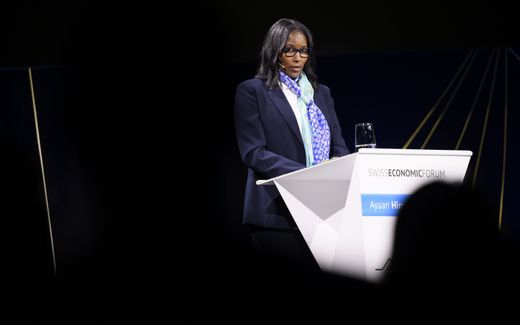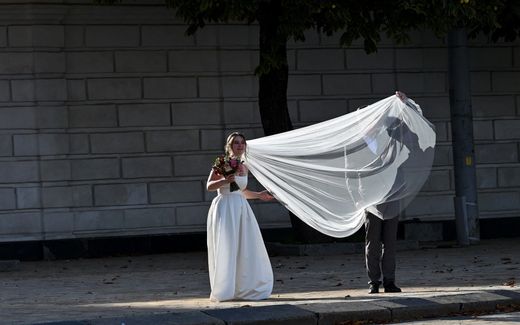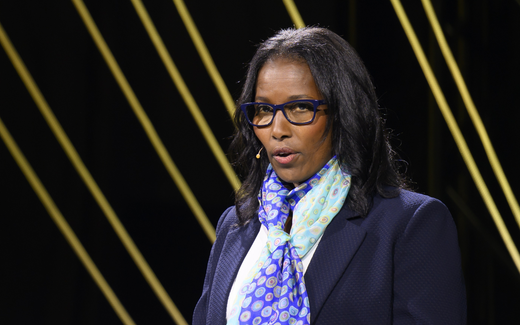Can the Happiness Report teach us how to build a happy nation?

Supports from Finland cheer during the IIHF 2023 Ice Hockey World Championship group A match between Finland and France in. Photo EPA, Kimmo Brandt
Christian Life
Once again, Finland has been named the happiest nation of the world, for the eighth time in a row. That is remarkable, because the country has forgotten its Christian roots and almost one in two children are born out of wedlock. How biased is the World Happiness Report?
Besides Finland, three other Nordic nations occupy the following top positions of the charts, while Norway is lagging behind, so to speak, with a ‘mere’ seventh position. This is quite an achievement for nations where the climate is the least hospitable of Europe.
However, does this report give an accurate picture of what is really going on in the Nordic nations? What are the presuppositions that govern the World Happiness Report?
Indicators
According to the World Happiness Report website, its authors claim that it is “the world’s foremost publication on global wellbeing and how to improve it.”
The authors continue: “By making the essential insights from wellbeing science accessible to all, we give everyone the knowledge to create more happiness for themselves and others.” So, according to the report's authors, what is the magic formula for creating a happy nation? The indicators used to measure a nation’s happiness are:
- Real GDP per capita;
- Social support;
- Healthy life expectancy;
- Freedom to make life choices;
- Generosity;
- Perceptions of corruption.
Of course, every nation wants to excel in these six indicators. Who doesn’t want a high GDP per capita, strong social support, a long healthy life expectancy, freedom to make life choices, high generosity, and low corruption?
Currently, the observation is undisputed. The Nordic nations are indeed leading the way. But how did they achieve such a high level?
Social model
Although the Nordic countries excel in the World Happiness Report, few can explain why this is the case. Some have advanced the Nordic social model. But if it worked well, it was only because the Nordic peoples had first been shaped by the biblical worldview for several generations.
The values cherished by a society are always the consequences of what previous generations have produced.
Since the seventeenth century, the teaching of the Bible, according to Luther’s catechism, was the central theme of Nordic education systems. Is it, therefore, surprising that the perception of corruption is lowest in nations where children were taught the Ten Commandments, including “thou shalt not steal” or “thou shalt not bear false witness”?
The values cherished by a society are always the consequences of what previous generations have produced.
However, after the Second World War, Christian teaching has been gradually ignored more and more. Today, anti-Christianity dominates education in the Nordic countries. The culture being formed there no longer recognises the Ten Commandments as the foundation of society.
Future
The World Happiness Report is based on indicators that measure the present, but they can in no way predict the future. Thus, the question remains, are the Nordic nations building a future that will make future generations at least as happy as the current one?
According to the Bible, the health of a nation is measurable, first, by its relationship with God, and second, by its relationships with others. The latter will be particularly visible in the health of its inhabitants.
So, what about the Nordic nations’ relationship with God? According to Pew Research conducted in the 2010s, Norway was the most religious of the Nordic countries, but only 19% of the population considered “religion very important in their lives.”
Of course, we need to keep in mind that religion is not necessarily the same as Christianity. Moreover, the official Lutheran churches in the Nordic countries have become liberal. For several decades now, they have not recognised that the entire Bible is the Word of God. This has led them, for example, to reject the exclusive biblical teaching on the family.
Children
And, unsurprisingly, the state of the Nordic family is not very good either. According to the World Population Review, the latest divorce-to-marriage ratio is 50 per cent in Sweden and Finland, and 39 per cent in Denmark and Norway. The infidelity rate is 46 per cent in Denmark (second in the world), while Norway follows with 41 per cent, Finland with 36 per cent, and Sweden and Iceland with 35 per cent.
But there is an indicator that is even more worrying, and that is the rate of children born out of wedlock. The best Nordic nation, so to speak, is Finland with 46 per cent (i.e., nearly one in two children). As for Iceland, it is the worst Nordic nation with 69 per cent (i.e., more than two out of three children)!
Costs
A 2011 report from the UK’s Relationship Foundation cited another report from the 1990s, quantifying the costs of family breakdown to society as a whole:
“Marital breakdown inflicts enormous damage on many of the people involved –not only the couples, but on their children– and on society. In 1994, the costs of family breakdown to the public purse were estimated at between 3.7 billion pounds and 4.4 billion pounds a year.
It is likely that today's public spending caused by family breakdown is running at about 5 billion pounds a year. There are also indirect costs, such as those arising from damage to children’s education, from subsequent criminal behaviour and from the impact of breakdown on the use of housing stock. Nor is it simply a question of financial costs. The human misery resulting from marital conflict and breakdown is immense.”
Knowing that family breakdowns have been on the rise in Northern Europe since the 1990s, it is legitimate to be worried about the future of the Nordic countries.
Large family
This year’s World Happiness Report acknowledges the importance of the family. However, it concludes that happiness decreases when a family is larger than four people. This obviously runs counter to God’s favourable view of large families (e.g. Psalm 127:3-5). Unfortunately, the World Happiness Report does not recognise God’s Word as the foundation for building happy nations. The limit it recommends regarding families only applies to the present.
According to the Bible, it is sin that makes nations unhappy.
In the nineteenth century, the French statesman Alexis de Tocqueville travelled to the United States to understand the source of the country’s prosperity, at a time when France was experiencing a sharp decline. His discovery was that families were strong. This was the fruit of a society that was still deeply Christian.
The Armenian-American scholar R.J. Rushdoony stated in his book “Law and Liberty” that the family “is man’s first church and first school, and also his first state. The government of the family by God’s appointed head, the man, is basic to society.”
Sacrifice
If the Nordic nations want to ensure a happy future for their descendants, the biblical concept of the family will have to be rediscovered.
Ultimately, the crucial problem with the World Happiness Report is that it fails to recognise the root cause that prevents nations from being happy. According to the Bible, it is sin that makes nations unhappy. Jesus’ sacrifice on the cross offers the solution.
Nations will only find the path to happiness by acknowledging Jesus Christ as their Saviour and Lord. This will only be possible if the church preaches once again the full Word of God, and when the education system becomes once again resolutely Christian.
Related Articles











